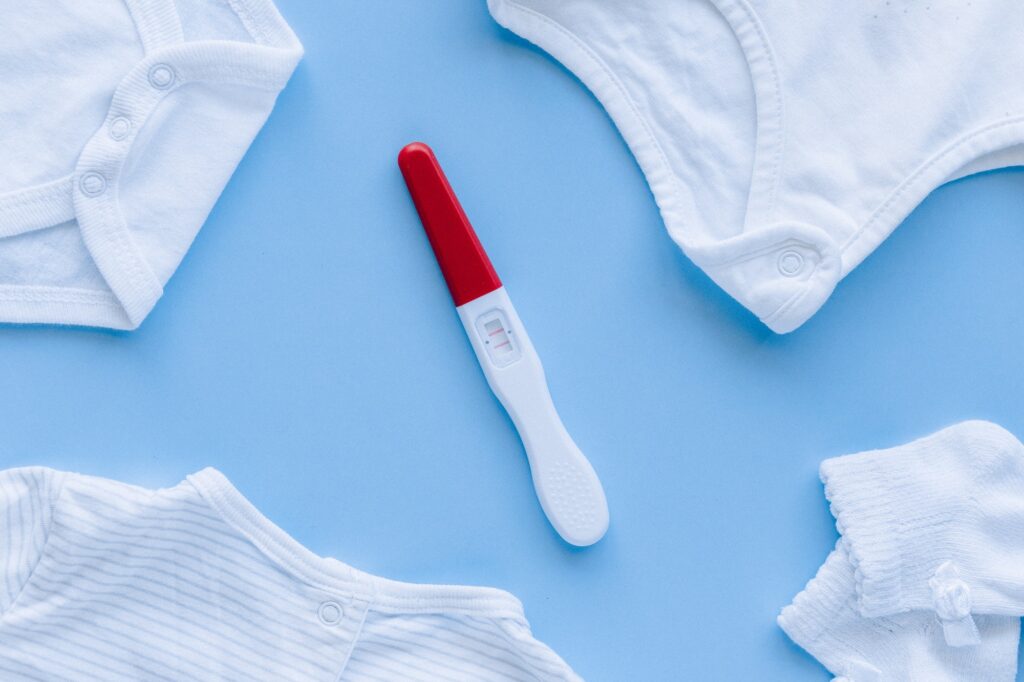When trying to get pregnant, getting a negative pregnancy test result might be upsetting. But just because a pregnancy test came back negative doesn’t necessarily imply you aren’t expecting. There are several possible causes of a false negative pregnancy test result, so if you’re here, you’re probably wondering if twins could be one of them. That question and others are addressed in this article.

How Do Tests For Pregnancy Work?
Everyone is familiar with how to perform a pregnancy test: pee on one end, wait a short while, and the results window will reveal whether or not you are pregnant.
Many hormonal changes occur in your body when you become pregnant. Human chorionic gonadotropin, also known as hCG, is one of these hormones that fluctuates. When levels of the hCG hormone are high enough, you will experience a positive pregnancy test result.
Once implantation—when the fertilized egg inserts into the uterine lining—takes place, hCG production starts. A positive pregnancy test result can be accurately obtained 7 to 12 days after successful implantation.
Two lines, a cross, or even the word “pregnant” on a digital pregnancy test may indicate a positive result on a pregnancy test. One line or the words “not pregnant” on a digital pregnancy test might serve as a negative pregnancy test indication. There may have been a false negative pregnancy test result, so a negative pregnancy test result does not always imply that you are not pregnant.
Can Twins Lead to a False Negative on a Pregnancy Test?
Yes, a twin pregnancy can result in a false negative pregnancy test result.
Your body will manufacture more hCG when you are expecting twins or even triplets. Although you might believe that having high hCG levels will enhance your likelihood of a positive pregnancy test result, the contrary is sometimes true!
Because it “confuses” the home pregnancy tests, too much hCG might actually result in a false negative pregnancy test result. The term for this is the “high-dose hook effect.”
Simply put, when there is too much hCG present, the antibodies on the pregnancy test strip are overwhelmed and provide a false negative result.
Other Reasons for a Fake Negative Pregnancy Test Finding
- A false negative pregnancy test result might have a number of additional possible explanations in addition to carrying multiple pregnancies. There are many explanations for faintly positive pregnancy tests that turn out to be negative the next day.
- Because there will be less hCG in your urine if you take a pregnancy test too early, you could get a false negative result. Test again later to ensure that the results were accurate if you tested before the first day of your missed period and got a negative pregnancy test result.
- You misunderstood how to properly complete the pregnancy test instructions. The usage instructions for each manufacturer’s pregnancy tests are unique. It’s crucial that you abide by these guidelines so that the tests can reliably identify pregnancy.
- The Pregnancy Test Was Inaccurate: In general, home pregnancy tests are very accurate and dependable. Pregnancy tests should be kept between 2 and 30 degrees Celsius, so if you use one that is out-of-date or has been improperly handled, the results could be off
Early Signs of Pregnancy
You can ask your doctor to run a blood test to evaluate your hCG levels if you think you could be expecting twins. If you watch out for pregnancy symptoms, you may be able to determine if you’re expecting a child.


